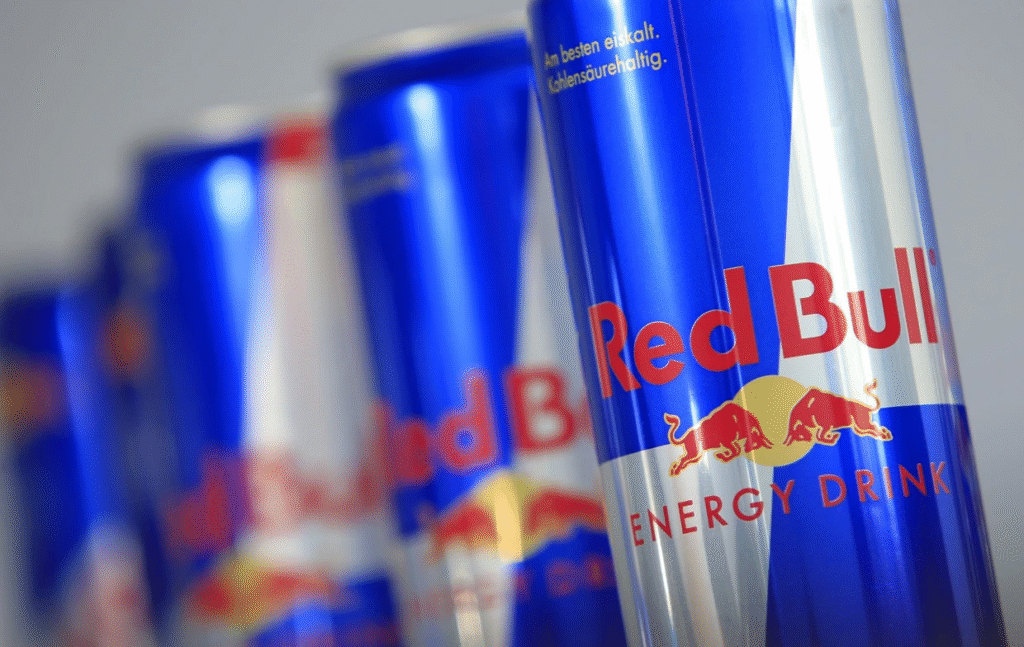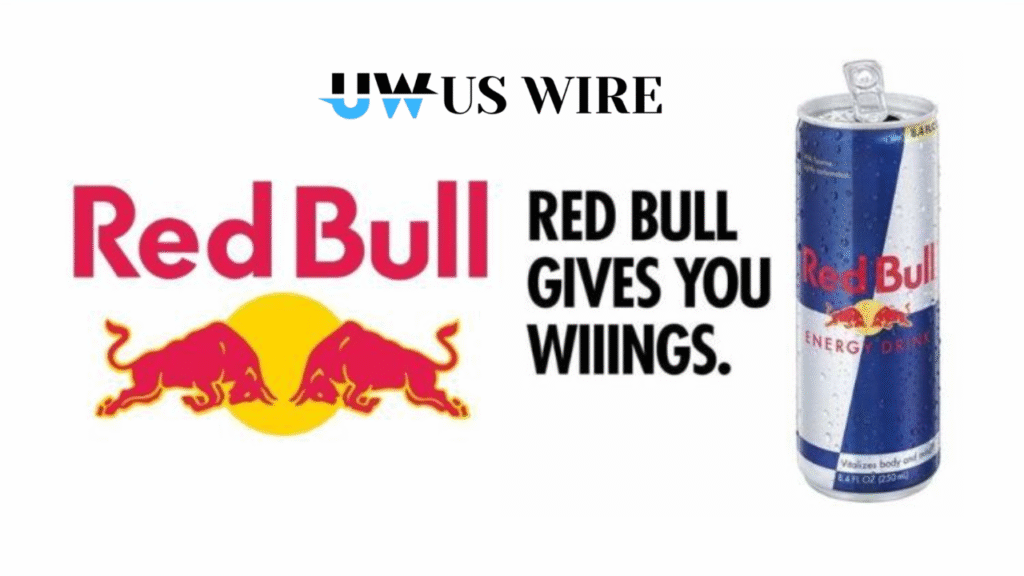You’ve probably heard the famous slogan: “Red Bull gives you wings.” It’s been part of the energy drink’s brand for years. But did you know that this catchy phrase actually led to a real-life lawsuit? Yes, people took Red Bull to court, claiming the slogan was misleading. The case became a big story in the United States and around the world. In this article, we’ll break down what happened, why it mattered, and what we can all learn from it.
What Does “Red Bull Gives You Wings” Mean?
The phrase “Red Bull gives you wings” is one of the most recognized advertising slogans ever. It’s part of Red Bull’s unique branding. They’ve used it for years in TV commercials, online ads, and on the product itself. But it doesn’t mean you’ll actually grow wings. Instead, it’s meant to be a metaphor—a creative way to say that Red Bull gives you energy or makes you feel more awake and alert.
In the commercials, people drink a can of Red Bull and suddenly start flying or soaring through the sky. The animation style makes it fun and silly. Most people knew it wasn’t literal. But the slogan also suggested that the product gave a real energy boost—a feeling of power or extra strength. That’s where things got complicated, especially when some customers felt misled by what the product actually delivered.
Why Did People Sue Red Bull?
In 2013, a man named Benjamin Careathers filed a lawsuit against Red Bull in the United States. He had been drinking Red Bull for years and felt that the company’s advertising had tricked him into believing that the drink would give him more energy or better focus than other similar products. He argued that Red Bull’s marketing—especially the slogan “gives you wings”—was false advertising.
This case quickly caught media attention. People were surprised. Could someone really sue a company for not growing wings? Of course, the lawsuit wasn’t about growing real wings—it was about how Red Bull promoted its drink. The legal question was whether the company misled consumers by claiming their energy drink provided special mental or physical benefits that it didn’t actually deliver.
Many people who joined the lawsuit didn’t necessarily expect magical results. But they believed they were buying a product with proven performance benefits, based on the company’s promises. And in a market full of options, they felt Red Bull used exaggerated claims to make their drink seem more powerful than it really was.
What Was the Lawsuit Really About?
At the heart of the Red Bull lawsuit was the idea of truth in advertising. The legal issue wasn’t whether people expected wings—it was whether Red Bull claimed to offer enhanced energy, better concentration, or improved athletic performance in a way that could mislead customers.

False Advertising
The lawsuit accused Red Bull of false and deceptive advertising. This is when a company says something in its ads that isn’t completely true or that leads people to believe something that isn’t supported by facts. Red Bull had said in marketing materials that its drink improved performance and reaction speed, but according to the lawsuit, there was no strong scientific evidence to back that up.
Even though the slogan was meant to be fun and metaphorical, the lawsuit claimed that many parts of the advertising—including statements about “boosting performance” and “increasing energy levels,” made specific promises that weren’t accurate.
No Real “Wings” or Boost
Red Bull contains ingredients like caffeine, taurine, and B vitamins. While these are common in many energy drinks, the lawsuit said that Red Bull didn’t do anything special compared to a regular cup of coffee. In other words, it didn’t “give you wings”—not even in the energy or focus sense. The court documents argued that the drink’s effect was no greater than less expensive alternatives, meaning people were paying more for something that didn’t deliver as advertised.
People Wanted Fairness
The lawsuit wasn’t just about one person—it turned into a class action, meaning many people joined together to hold Red Bull accountable. These customers said that they felt the company had taken their money based on unrealistic promises, and they wanted compensation. They weren’t angry because they didn’t grow wings—they were frustrated because they believed the drink didn’t provide the benefits it claimed to offer.
What Did Red Bull Do After the Lawsuit?
In 2014, Red Bull decided to settle the lawsuit without admitting any wrongdoing. That means the company didn’t say they were guilty, but they agreed to pay to avoid a longer legal battle. This is common in big brand lawsuits. Companies may settle to protect their brand image or to avoid bigger costs later.
As part of the settlement, Red Bull agreed to pay $13 million into a fund. This money was used to reimburse customers in the U.S. who bought Red Bull products between 2002 and 2014. The company also made small changes to its marketing and provided legal notices explaining the settlement.
Red Bull still uses the slogan “gives you wings,” but now it includes clear disclaimers and is more careful with performance-related claims. While they maintained that the lawsuit was without merit, they respected the court process and adjusted accordingly.
Did People Get Paid From the Case?
Yes, many people who were part of the class action lawsuit were able to receive money or free Red Bull products. Anyone who bought a Red Bull drink between January 1, 2002, and October 3, 2014, could submit a claim online without showing proof of purchase.
Each person was eligible to receive either $10 in cash or $15 worth of Red Bull products. While this amount wasn’t huge, it was symbolic. It sent a message that even large companies must be honest about what they’re selling. The case also showed how consumers could band together to challenge misleading advertising.
The settlement received a lot of attention in the media and online. Some people made jokes about it, but others saw it as an important example of consumer rights in action.
Why Is This Case Important Today?
Even though this lawsuit happened years ago, it’s still an important case in advertising law, consumer protection, and brand accountability. It helped show that companies, even global ones like Red Bull, must follow the rules and be clear about their promises.

Ads Must Tell the Truth
The Red Bull case reminded businesses that they can’t say just anything in their ads, even if it sounds fun or creative. Claims about a product’s effects—whether it’s boosting energy, improving focus, or making people feel better—must be backed by science or facts. Otherwise, they could face legal action.
People Can Speak Up
Another big lesson from the Red Bull lawsuit is that ordinary people have power. One person—Benjamin Careathers—decided to take a stand. That single action led to millions in refunds and a change in advertising practices. It’s a reminder that if something feels unfair or misleading, you have the right to speak up and take action.
Even Big Brands Must Follow Rules
Red Bull is a massive, global company with a huge budget and marketing team. But that didn’t protect them from legal consequences. The lawsuit showed that laws apply to everyone, and even the most successful companies must play by the same rules as everyone else. Honesty in business is not optional—it’s required.
What Can We Learn from the Red Bull Lawsuit?
The Red Bull “gives you wings” lawsuit teaches us a valuable lesson: always read between the lines. Just because a product has clever ads or cool slogans doesn’t mean all of its claims are true. Consumers have the right to expect honesty, and companies must advertise fairly and clearly. If a product promises something amazing, there should be proof to back it up.
This case also reminds us to ask questions, do our research, and not accept everything we see in ads at face value. If something sounds too good to be true, it probably is. But if you feel tricked or misled, you also have the right to challenge those claims, just like people did with Red Bull.
The Bottom Line
The Red Bull lawsuit wasn’t really about flying. It was about fairness, truth, and responsibility. The famous slogan “Red Bull gives you wings” may have been meant as a joke, but when it came to energy claims and advertising promises, some people believed the brand went too far. Thanks to the class action case, Red Bull paid millions to settle and learned a big lesson about advertising transparency.
For the rest of us, the story is a reminder that words matter—especially in advertising. Whether you’re a shopper, a student, or someone running a business, remember that honesty builds trust. And even the most powerful companies in the world must answer to their customers.


